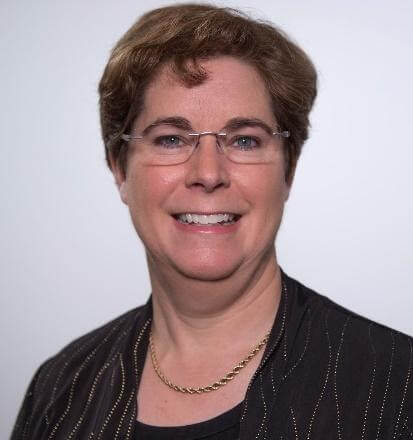Q&A: Optimizing Trust in a Digital World
We are living in a digital-first world and trust is more than secure transactions. During our November 11 Market Pulse: Optimizing Trust in a Digital-First World, our guest speakers presented on how in a digital world, trust is all about linking data across interactions to uncover actionable insights.
This month’s presenters included Amy Crews Cutts, President and Chief Economist at AC Cutts & Associates; Tom Aliff, Risk Consulting Leader at Equifax; Shelly Nischbach, Vice President & Sales Leader at Equifax Workforce Solutions; and Rich Stuppy Vice President & Chief Customer Experience Officer at Kount. Presenters followed up with audience members’ questions about inflation, fraud, consumer credit data, and more. Amy Crews Cutts, Tom Aliff, Shelly Nischbach, and Rich Stuppy answer those critical questions below. *
Watch a replay of our webinar, “Market Pulse: Optimizing Trust in a Digital-First World” or download a copy of the presentation.
Jump ahead to a specific topic:
Inflation
 Do you see
inflation impacting loan growth, particularly credit
cards?
Do you see
inflation impacting loan growth, particularly credit
cards?
Tom Aliff: If inflation happens, credit cards and the prices of things people are buying will increase. That being said, we do see some correlation of inflation potentially impacting loan growth, as consumers continue to open up their spending and bank cards.
What are your thoughts around us falling into the wage spiral or inflation being self-fulfilling?
Amy Crews Cutts: There is hope that with wages increasing the pocketbooks of most families, they won’t be constrained. We had a lot of savings from 2021, and hopefully it will outlast this period. However, with consumers there is no longer this sense to buy a product right away no matter what the cost. This type of behavior has gone down, and is starting to go away.
Fraud
With businesses reporting incidence of fraud, are chargebacks a consideration/factor in that calculation?
Amy Crews Cutts: I am sure that is part of it. The report doesn't specifically say - they try to get maximum responses to the survey of their members by keeping the questions small in number and detail. Here is one of the reports for your reference.
General Economy
Given all the headlines around the supply chain issues, how do you see those impacting the economy as we wrap up 2021 and move into 2022?
Amy Crews Cutts: Talking with economists throughout the business and the real economic sectors, manufacturers of cars and computer technology, it looks like this supply chain issue is going to be with us for a while because of the semiconductor shortage. Shortages are not happening because they are not making enough chips; it is because of the demand for chips.
Car manufacturers have slowed down which is a huge hit to the auto industry as well as other industries that use these chips globally. We also have a lot of rolling supply issues. Rolling supply crunches keep coming through and lasting for months. I do not think we will get out of it in early 2022, but hopefully in late 2022.
 How can The
Work Number help with my loan approval process and how can I
learn more about it?
How can The
Work Number help with my loan approval process and how can I
learn more about it?
Shelly Nischbach: Equifax at large has built a ton of options to help you build your own best practice. The Work Number as a best practice used at the application part of your process can help you. We talked about the seamless customer experience and higher converversion rate and have over 125 million active records and are growing. We can help streamline your process to deliver more loans with less risk. For more information you can email me at michelle.nischbach@equifax.com or visit our website.
Innovation
 What are some
new and innovative approaches you’re seeing from customers when
it comes to revolutionizing their customer experience?
What are some
new and innovative approaches you’re seeing from customers when
it comes to revolutionizing their customer experience?
Rich Stuppy: The ability to use data for branded experiences for your customer is a big part of it. But, once you know you have the access to the data you can have the courage to solve high dollar problems. This means, help maximize customer life size value or grow wallet share, but also take an understanding of a customer and knowing you are dealing with a trustworthy customer is important. Let’s do appropriate loyalty incentives after an interaction application.
In travel and entertainment customers are using our travel score data to eliminate those friction points. The biggest high dollar problems we are working on is with banks. They have problems around rates of authorization of digital interactions. This is a problem we can all get behind and solve.
When does cryptocurrencies start to impact/play a role in our credit lending world?
Amy Crews Cutts: The jury is still out on what crypto really means and what it is trying to solve. One I hear often is that cryptocurrency removes friction and gets instantaneous transfer of money. The Federal Government and Treasury are currently looking at cryptocurrency. The Federal Government has announced it is creating its own stable coin. A stable coin is backed by an asset, which bitcoin is not. I think it is complex and a lot of good has come out of it like block chain technology, which could have a lot to do with how we look at fraud prevention in the future.
Some countries have adopted cryptocurrency as a medium of exchange. Instead of seeing things move two to three percent a quarter, they started seeing their assets move within two to three percent in a minute, which makes me believe that they will walk that back pretty quickly. I do not see this coming to other parts of the world. However, many credit card companies have created a cryptocurrency in a way because for example, your credit card can be your currency for that purchase and has a lot of cost in it. Overall, there are a lot of lessons to learn from this.
Click here to watch the November Market Pulse webinar for more on optimizing trust in a digital-first world. Access additional related insights here and register for upcoming webinars here.
* The opinions, estimates and forecasts presented herein are for general information use only. This material is based upon information that we consider to be reliable, but we do not represent that it is accurate or complete. No person should consider distribution of this material as making any representation or warranty with respect to such material and should not rely upon it as such. Equifax does not assume any liability for any loss that may result from the reliance by any person upon any such information or opinions. Such information and opinions are subject to change without notice. The opinions, estimates, forecasts, and other views published herein represent the views of the presenters as of the date indicated and do not necessarily represent the views of Equifax or its management.
Recommended for you





